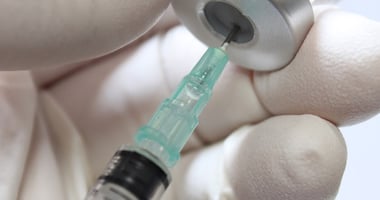Patients with a recent first episode of schizophrenia who are treated with a long-acting injectable...
Frequent Patient Contact May Reduce Risk of Relapse in Schizophrenia Patients
 |
In a previous report, Peter Buckley, M.D. (pictured left), dean of the Medical College of Georgia Regents University in Augusta, and colleagues compared relapse in 305 patients with schizophrenia or schizoaffective disorder who were randomly assigned to LAI risperidone or oral second-generation antipsychotics. The results of the PROACTIVE trial (Preventing Relapse Oral Antipsychotics Compared to Injectables Evaluating Efficacy) revealed no difference in overall rate of relapse between the two groups (42% with injectable medication, 32% with oral medication) and no significant difference between the groups in time to first relapse.
In the follow-up study published in Psychiatric Services, Buckley and colleagues compared second and third relapses between patients who continued in their randomized treatment (147 in the injectable medication group and 151 in the oral medications group) to assess whether experience of relapse had a differential impact on subsequent relapse among those receiving injectable or oral medication.
Thirty-two patients (11%) experienced a second relapse—16 in the injectable medication group and 16 in the oral medications group. Thirteen patients (4%) experienced three relapses—five in the injectable medication group and eight in the oral medication group. There was no statistically significant difference between the two treatments.
In an interview with Psychiatric News, Buckley emphasized the “pragmatic” design of PROACTIVE and its follow-up—patients and clinicians in the study were allowed greater flexibility to address problems in treatment, as would be more likely in day-to-day clinical practice, in contrast to the strict protocols typically imposed in a standard clinical trial. Specifically, patients in the oral medication group were allowed flexibility to change medications, and patients in both arms received biweekly meetings with clinicians and staff to monitor compliance.
“Two things seem to account for [the lack of difference between the two treatments],” Buckley told Psychiatric News. “First, what drives the perceived benefit of injectable medication is that you have a greater assurance patients are taking their medication. But in this study, we washed out that benefit because both groups were under the watchful eye of our team. Second, all the patients were seen every two weeks, which reduced the overall rate of subsequent relapse.”
He continued, “We set out to do our best to determine if there was a distinction between the two treatments, but what we ended up showing is that when you provide care in a setting where patients are seen frequently, we can really impact relapse.”
For related information, see the Psychiatric News article “LAI Antipsychotics: Game Changer, or Still Awaiting Evidence of Superiority?”





